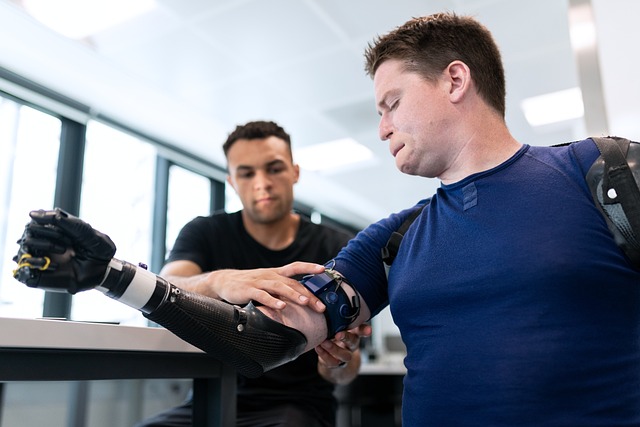Share This Article:

Case Management Focus: The Case Manager’s Role in Working with Patients Who Suffer Limb Loss
31 Oct, 2023 Anne Llewellyn

Sarasota, FL (WorkersCompensation.com) -- Last week, I had the opportunity to participate in a workshop by Hanger Clinic on Upper Extremity Limb Loss. The workshop speakers discussed the advances in prosthetics that are helping people with upper-body limb loss get back to work and their lives.
I was asked to participate in the event to represent the role case managers play when a patient has an amputation. I shared that case managers are called to work with patients after a catastrophic event or when they have complex and costly chronic medical or behavioral health conditions. The benefit of having a case manager on the case is to ensure that the patient is getting the care they need at the right time, in the least restrictive setting, for the most cost-effective price. Case Managers are also in place to support the person and their family, as sustaining an amputation is a life-changing event. Case managers practice proactively to help patients prevent setbacks and to find the resources they need.
Here are some stats that I learned at the conference that are important for Worker's Compensation Case managers:
+ Receiving a prosthesis may ease some of the challenges patients face. Recent research shows that prosthetic rehabilitation positively impacts quality of life, mobility, and satisfaction and can lead to a reduction in overall healthcare costs (up to nearly $100,000 if a prosthesis is received 0-3 months post-amputation)
+ Patients with Upper Limb amputation, when fitted with a prosthesis within 30 days, had a 100% return to work rate!
+ Evidence also shows that the most effective way for people to adjust to life with limb loss is through education and emotional support from peers who have successfully moved forward after amputation. Peer visitors are uniquely qualified to help amputees cope because they have first-hand experience overcoming negative emotions during their own recovery and rehabilitation process. 92% of patients indicated that a peer visit substantially improved their outlook.
There are a variety of custom prosthetic solutions available for those with amputation. The key is getting the patient connected to a reputable prosthetic company that has an interprofessional team dedicated to working with them to achieve their goals and improve their outcomes.
What I have learned working with patients who suffer catastrophic/complex conditions is that when they receive the care they need at the right time and get the necessary resources, they are resilient. As a case manager, helping to connect with the right people allows good things to happen in tragic situations.
Reference:
Limb Loss and Limb Difference: Facts, Statistics, & Resources https://hangerclinic.com/blog/prosthetics/limb-loss-and-limb-difference-facts-statistics-resources
california case management case management focus claims compensability compliance courts covid do you know the rule emotions exclusive remedy florida FMLA fraud glossary check health care Healthcare hr homeroom insurance insurers iowa leadership medical NCCI new jersey new york ohio osha pennsylvania roadmap Safety state info technology texas violence WDYT west virginia what do you think women's history women's history month workcompcollege workers' comp 101 workers' recovery Workplace Safety Workplace Violence
Read Also
About The Author
About The Author
-
Anne Llewellyn
Anne Llewellyn is a registered nurse with over forty years of experience in critical care, risk management, case management, patient advocacy, healthcare publications and training and development. Anne has been a leader in the area of Patient Advocacy since 2010. She was a Founding member of the Patient Advocate Certification Board and is currently serving on the National Association of Health Care Advocacy. Anne writes a weekly Blog, Nurse Advocate to share stories and events that will educate and empower people be better prepared when they enter the healthcare system.
More by This Author
- Apr 08, 2025
- Anne Llewellyn
- Mar 31, 2025
- Anne Llewellyn
Read More
- Apr 16, 2025
- Frank Ferreri
- Apr 16, 2025
- Claire Muselman
- Apr 16, 2025
- Chris Parker
- Apr 16, 2025
- Chriss Swaney
- Apr 15, 2025
- Claire Muselman
- Apr 14, 2025
- Frank Ferreri




